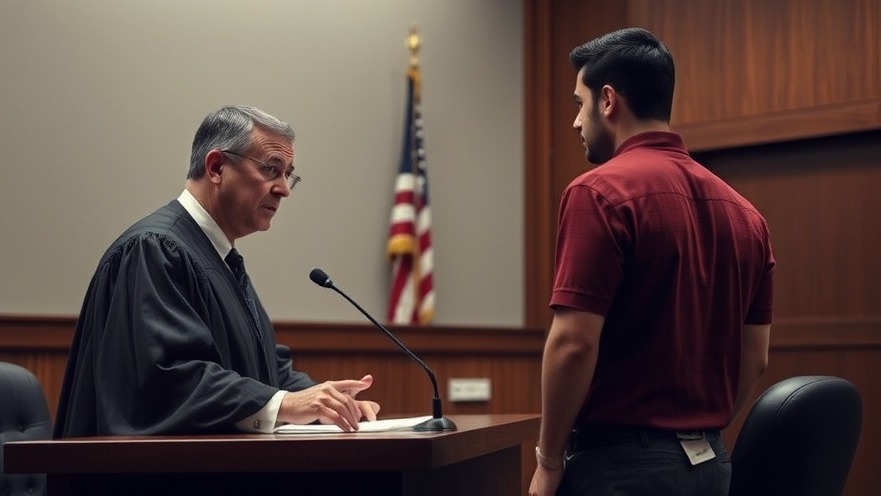
Trial Commences in a High-Profile Killing of Deputy Constable
In Harris County, the spotlight is on a significant trial that began this week, as Oscar Rosales faces charges related to the shocking death of Deputy Constable Charles Galloway. This incident, which occurred during a routine traffic stop in 2022, has reignited discussions about law enforcement safety, judicial proceedings, and the potential consequences facing those accused of violent crimes.
The Stakes Are High: Capital Punishment and Its Effects
Prosecutors are pursuing the death penalty for Rosales, a decision that elevates the stakes of the trial considerably. The implications of capital punishment narrow the scope of legal defenses available to the accused, making it a moment of unparalleled tension for both the defense and the prosecution. As the trial unfolds, many in the community are grappling with the moral complexities surrounding the death penalty, especially as it applies to law enforcement-related homicides.
Contextualizing Law Enforcement Violence in America
This case is emblematic of a broader issue concerning the violence against law enforcement professionals across the United States. Recent statistics indicate an upward trend in officer fatalities, challenging the safety measures and protocols that have historically been in place. Such realities illustrate the dangers officers face daily, making cases like Galloway's particularly poignant.
The Emotional Component: Understanding Community Sentiment
The emotional ripples of Deputy Galloway's death have deeply affected the Harris County community. Friends, family, and fellow officers have expressed profound grief while also calling for justice. This trial serves as a reflection of collective traumatization felt when those entrusted with public safety are killed in the line of duty. Engaging with community sentiments offers crucial insights into how public perception can influence jury decisions.
Legal Proceedings: The Role of Evidence in Court Decisions
As jurors were presented with bodycam and dashcam footage during the initial proceedings, the reliance on visual evidence underscores a critical aspect of modern trials—technology's role in delivering justice. The portrayal of events can significantly shape narratives, impacting the jury's emotional and rational responses. Observers may ponder how the appeal of visual evidence affects one's perception of guilt or innocence.
Counterarguments: Perspectives on Self-Defense and Traffic Stops
In any trial, especially one involving a shooting, the defense often argues the context surrounding the incident. It will be imperative to consider whether Rosales's actions can be construed as self-defense or a justified reaction during the confrontation. The nuances of such arguments highlight the necessity for a balanced trial where all aspects are transparently examined. This ensures that the complexities of the human experience are factored into the judicial process.
Future Implications: What Comes Next for Law Enforcement Policies?
As the trial progresses, it serves not only to determine Rosales's fate but also to examine how law enforcement protocols and policies might evolve in response to incidents like Galloway's. The potential for increased legislative measures addressing officer safety, community engagement, and public awareness around the challenges faced by law enforcement may arise from the widespread attention this case receives.
Making Sense of Tragedy: Lessons to Be Learned
In the aftermath of such tragedies, both the judicial system and law enforcement communities reflect on the repercussions that extend beyond individual cases. They must explore effective training, open dialogue with local communities, and strategies to mitigate risks during routine interactions. This trial marks a moment of introspection—a chance for growth and improvement based on past mistakes.
A Call for Justice and Reflection
As the Harris County community and the nation at large watch this trial unfold, there is a shared desire for justice. The outcome holds significance not only for Rosales and the Galloway family but for public trust in law enforcement and the judicial system itself. It invites reflection on how we approach violence and accountability within our communities.
 Add Element
Add Element  Add Row
Add Row 



Write A Comment